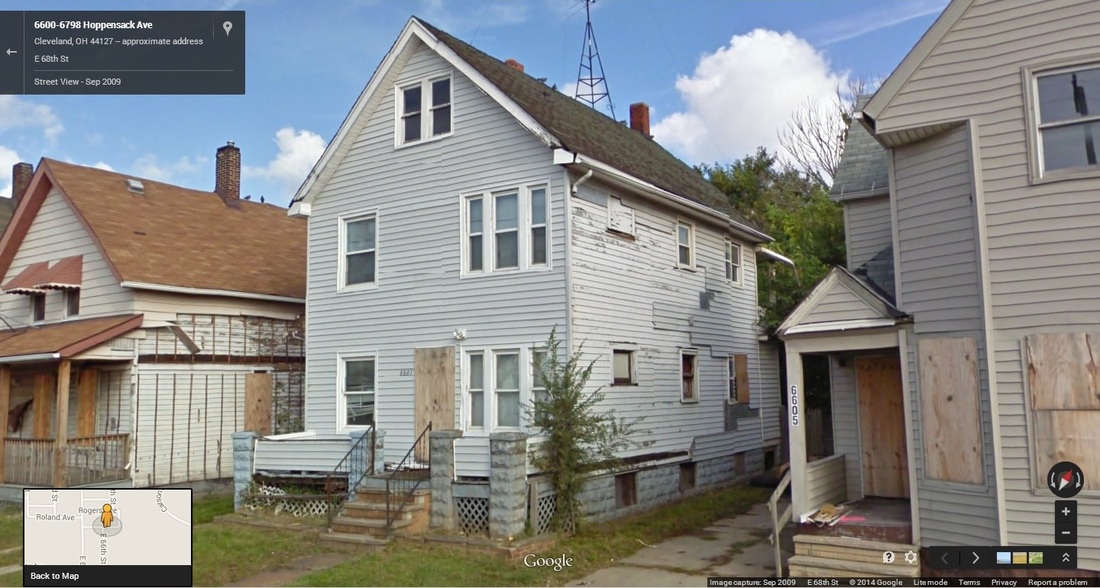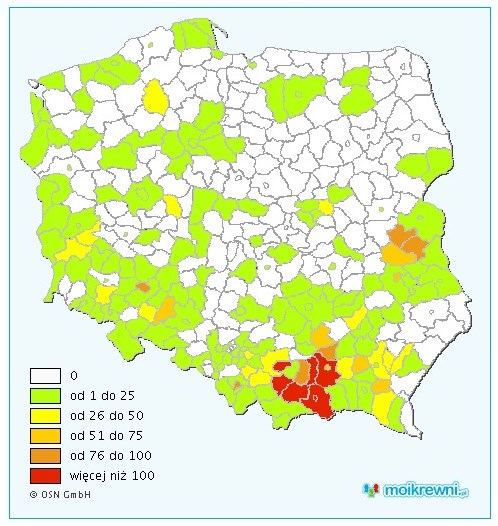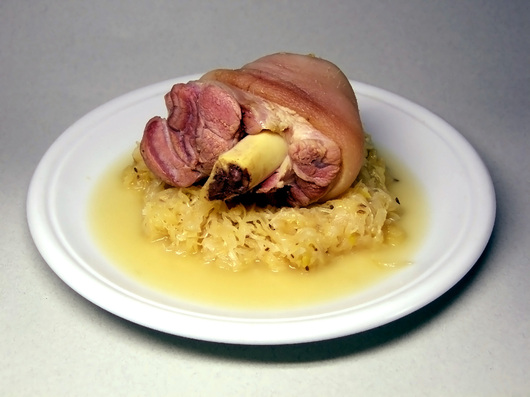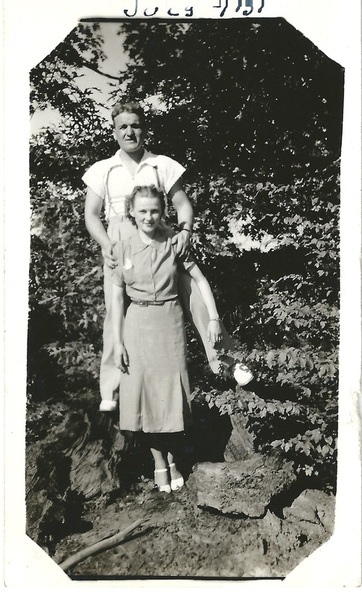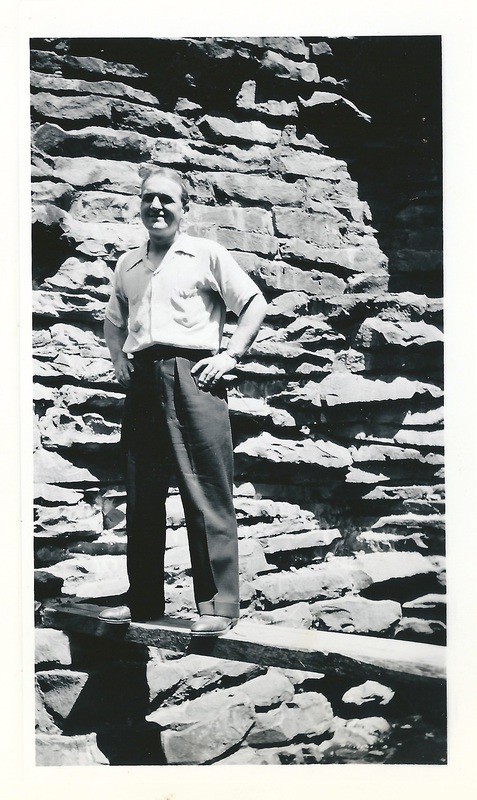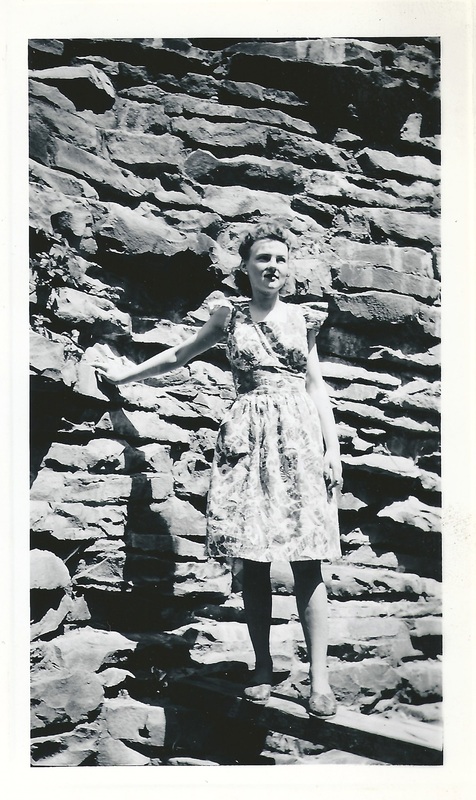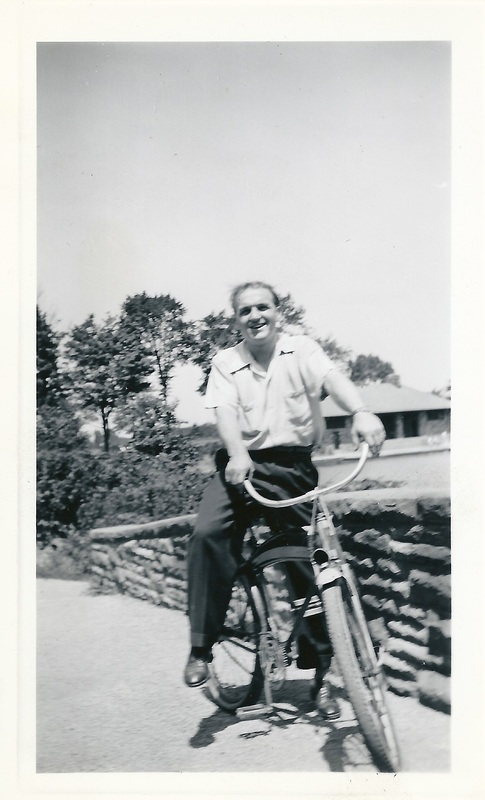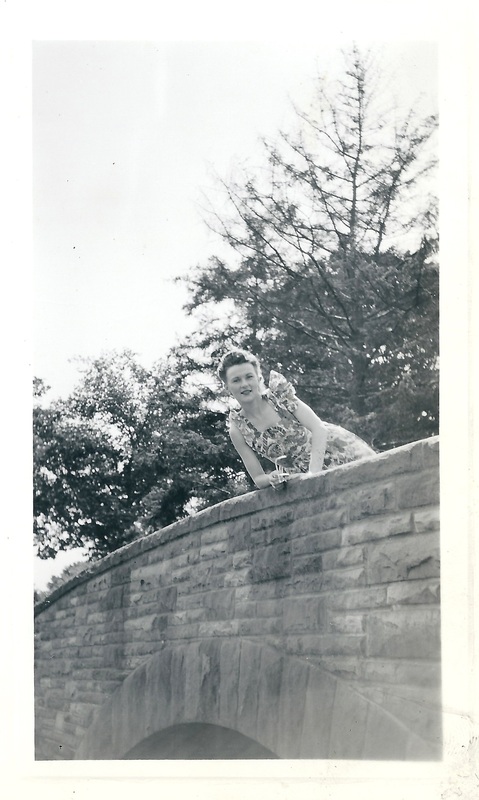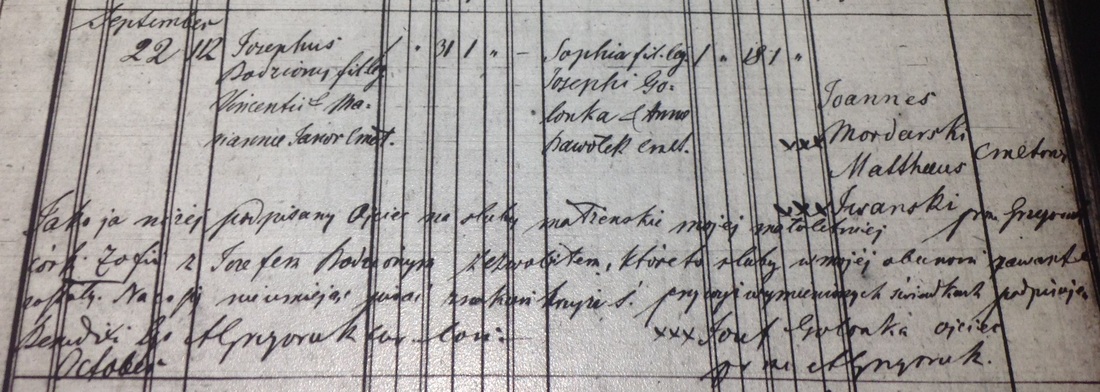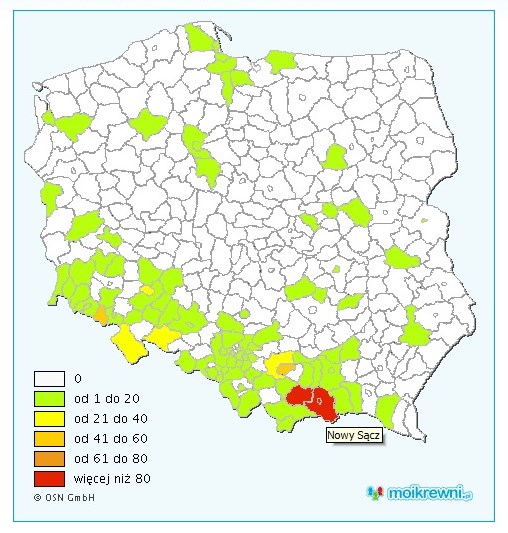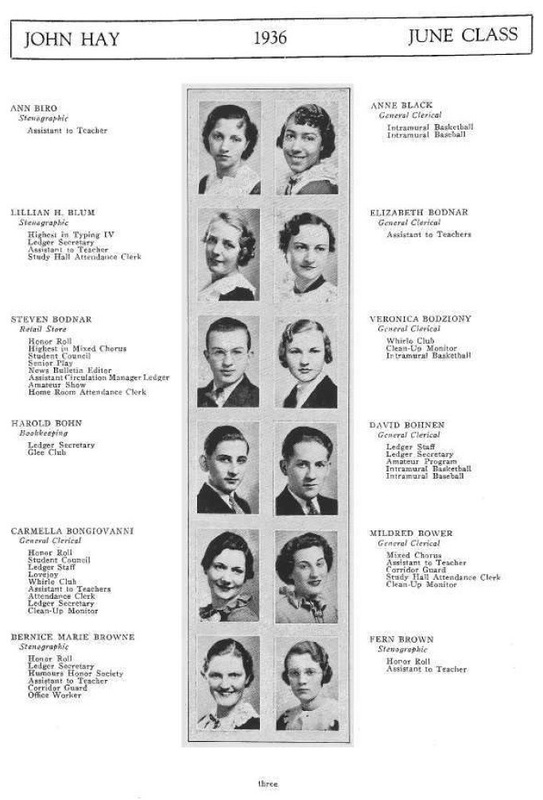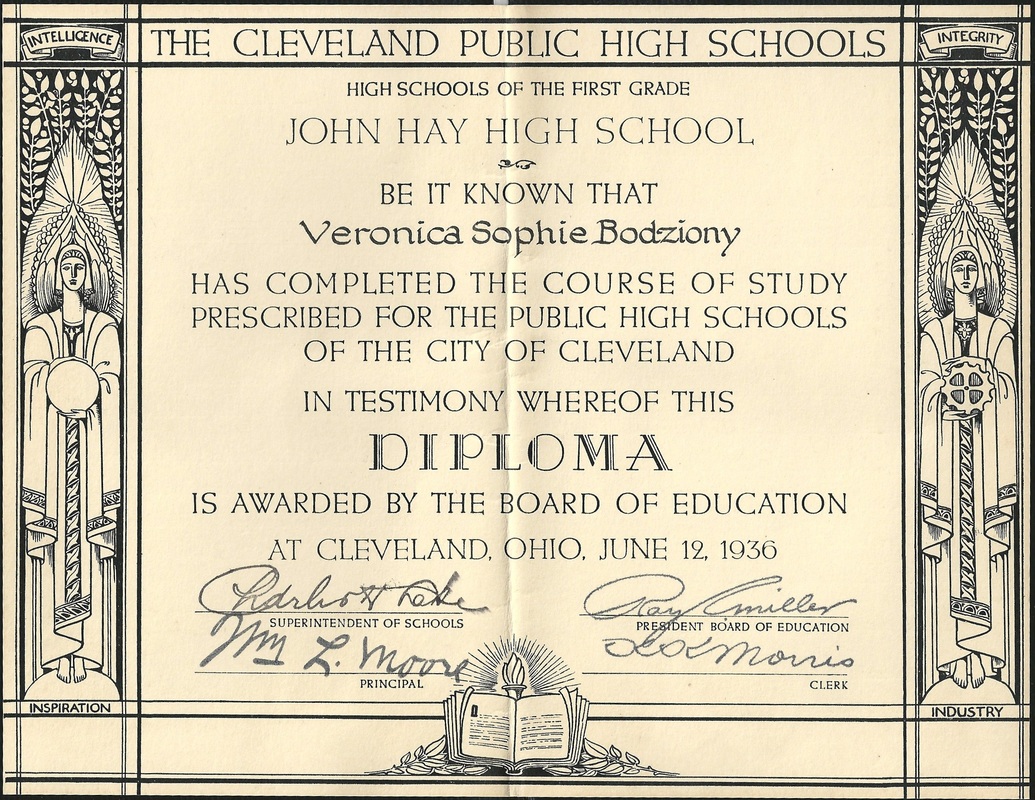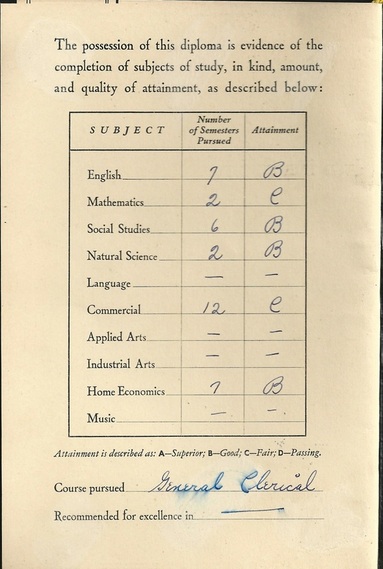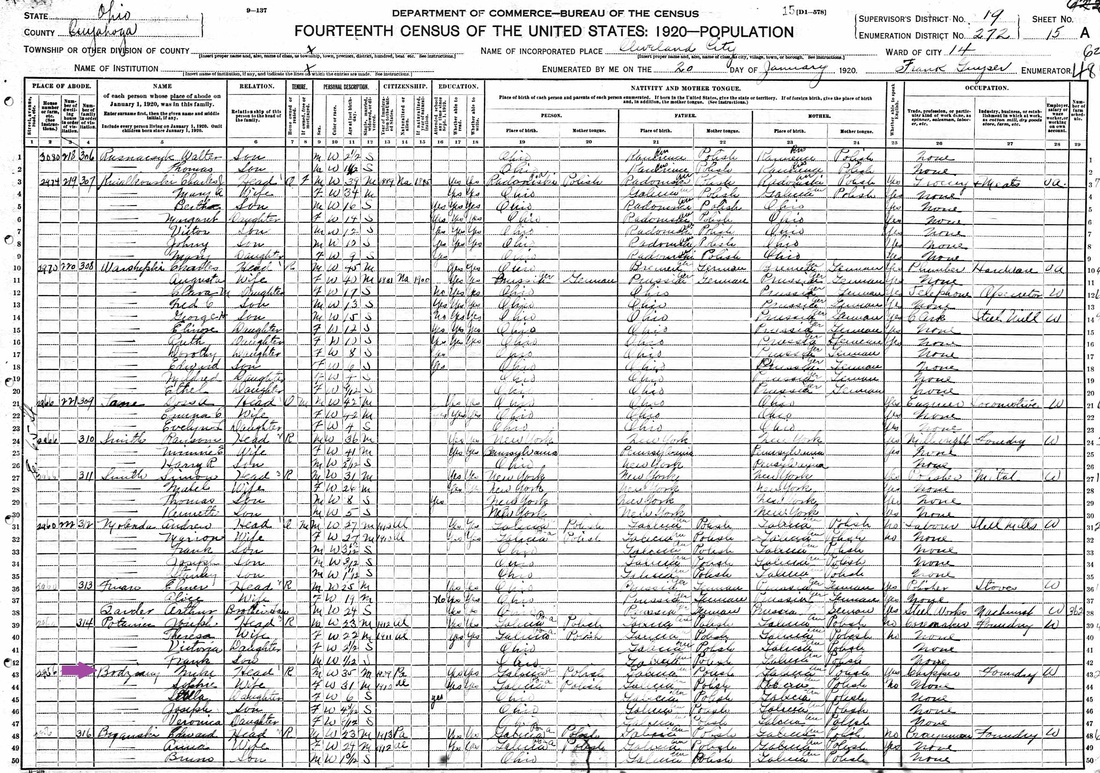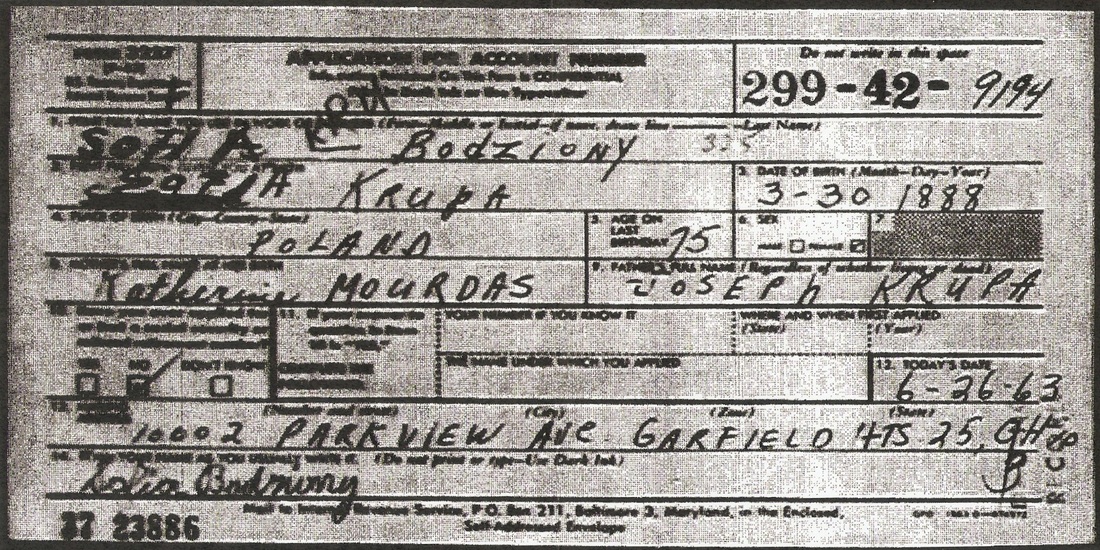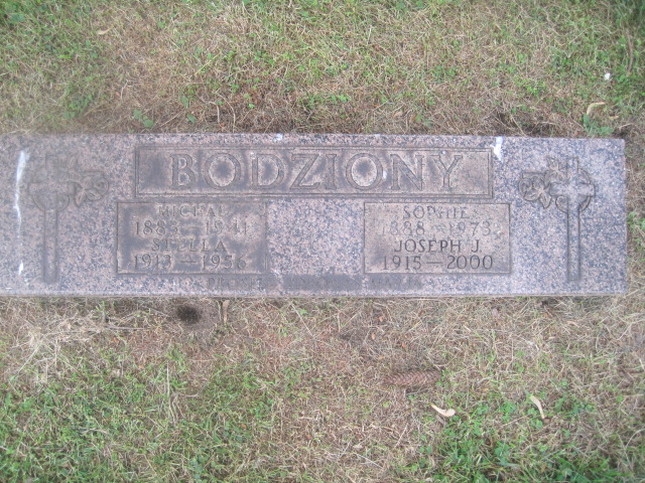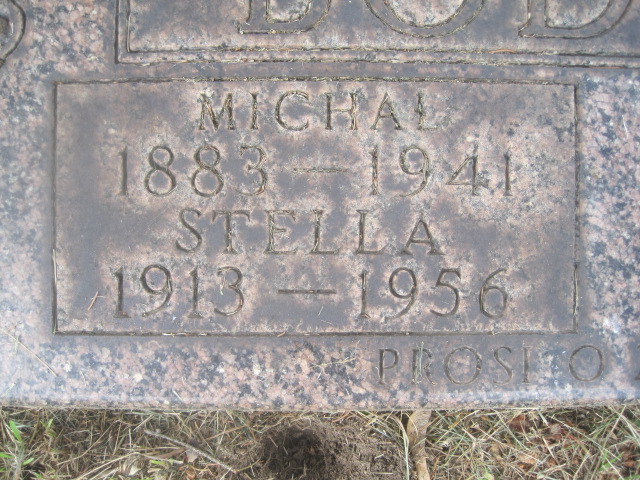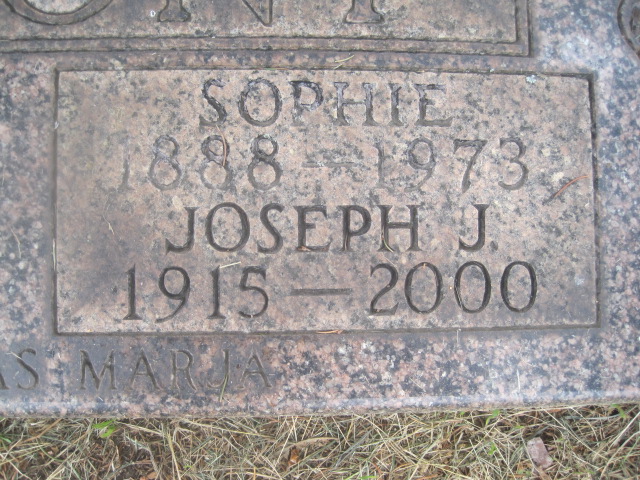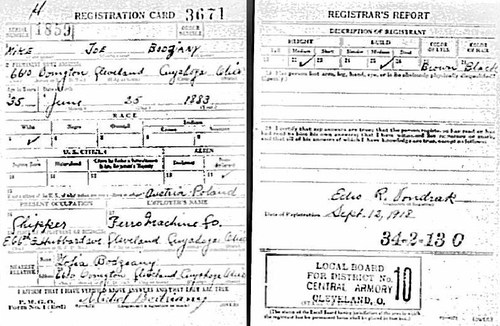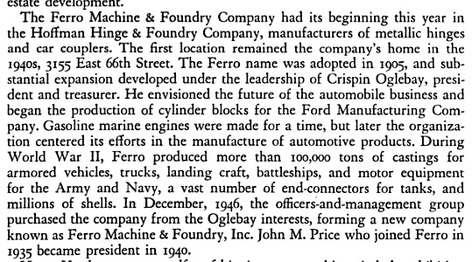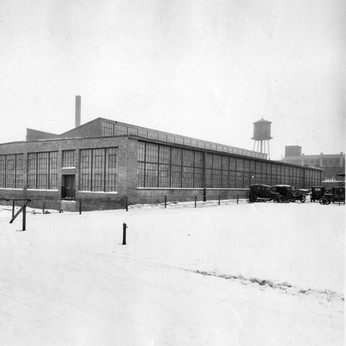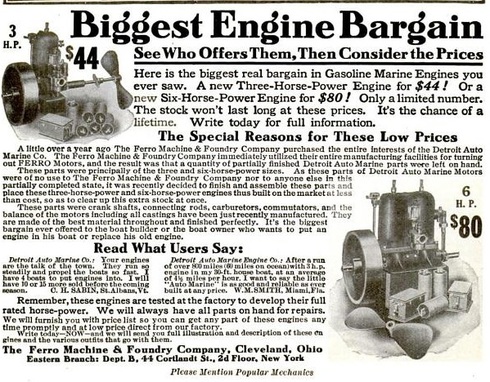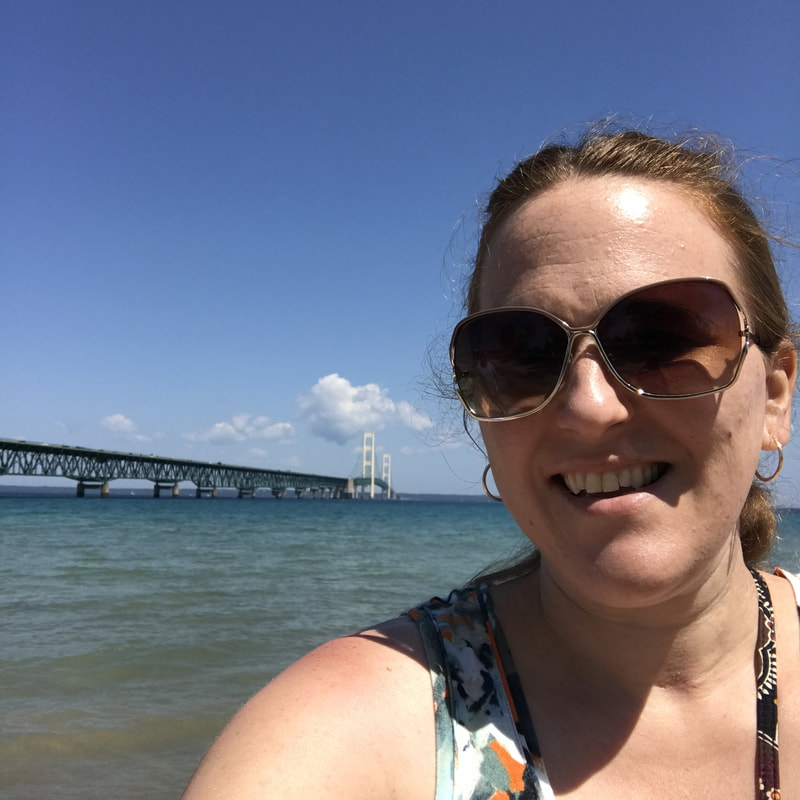UPDATE (11 Dec 2014): Since August, Google has updated this particular street's Street View images. Because the photo above uses a widget to pull directly from the current database, it updates when the images update. As you can see, the home in which my grandparents lived has been torn down. I am so, so glad that I took screen shots of the previous images, and saved them on my hard drive. Here is what the house looked like:
|
On this day in 1915, my paternal grandfather, Casimer John Kowalski, was born in Cleveland, Ohio to Polish immigrants Dominik and Wladyslawa ('Lottie') Kowalski. He was the youngest of four boys and the only member of his family born in America. He married Veronica Bodziony in Cleveland in 1939. Here is the 1940 U.S. Census in which they are listed (click for larger view): In 1940, Cas and Veronica are living at 6601 Hoppensack Ave on Cleveland's east side. They had remained in the same neighborhood in which they grew up; both of their parents are still living on E. 65th and E. 63rd Streets, just right around the corner from Hoppensack Ave. Here is what the home looked like about five years ago, according to Google Street View. The front siding and windows are obviously newer in make, but the house probably looks much like it did in 1940. (According to real estate data, it was built in 1900.) Some of the older wooden siding can be seen on the side where the newer siding has come off. Unfortunately, like this house, many houses in this area of the city have become run-down and/or abandoned. According to the census form, Cas and Veronica rented living space from the home's owners and residents, Frank and Anna Kontor, who were Polish immigrants. My grandfather was working as an inspector in a cast iron foundry. You can see, by glancing at the occupations of the other residents on the census form, that this was a very blue-collar, industry-dependent neighborhood. UPDATE (11 Dec 2014): Since August, Google has updated this particular street's Street View images. Because the photo above uses a widget to pull directly from the current database, it updates when the images update. As you can see, the home in which my grandparents lived has been torn down. I am so, so glad that I took screen shots of the previous images, and saved them on my hard drive. Here is what the house looked like: ©2014, copyright Emily Kowalski Schroeder
1 Comment
I have recently been working on uploading to my family history website all of the baptism, marriage, and death records that I collected on my recent trip to Salt Lake City (SLC) a few months ago. One of the families that I spent a lot of time researching was that of Michael Bodziony, who was my paternal grandmother's father. According to his 1883 baptism record from the town of Świniarsko, Poland, his mother was named Sophia Golonka, son of Joseph Golonka and Anna Bawotek. (Aren't these Polish baptism records wonderful - names of the parents AND grandparents!) Through FamilySearch.org's online search engine, I was able to find an indexed record from the nearby town of Brzezna, Poland that was likely Sophia's baptism record. I confirmed that it WAS her baptism record when I was able actually look through the microfilm and found Sophia's marriage record to Michael's dad, Joseph Bodziony (also in Brzezna), in which her parents are also listed. Fortunately, the Golonka family had been in Brzezna for a few generations, so I was able to use the same microfilm to trace back that line to Sophia Golonka's grandparents, Thomas Golonka and Petronella Iwanszczonka (or Iwanska), who would be my 4x great-grandparents! Not bad considering that I started out my genealogy journey not even knowing who Michael's parents were! Here is the present day distribution of the surname Golonka in Poland today, according to Moikrewni.pl: According to that site, there are about 4,400 people in Poland today with the surname Golonka, so it's not terribly common. You can see that there is a heavy concentration of the name in southern Poland, in an area that was called Galicia when my great-grandfather was born. In fact, Nowy Sącz County, where both Świniarsko and Brzezna are both located, has the second-highest concentration of the name, behind the county of Limanowa, which is just to the west. 'Golonka' literally means 'knuckle' in Polish. The word is used to refer to the Polish dish of ham hocks, which technically aren't pig knuckles, but instead are the animal's ankles. In any case, my love of pork products can now be attributed to genetics - it's literally in my bloodlines. :-) A native Polish speaker also suggested to me that the name might carry the meaning of shaving or of being shaven. The Polish verb for 'shave' is golić, so the surname might have the same root. Family members, the link to the new and updated Golonka ancestor page is here. The link to Michael Bodziony's paternal Bodziony ancestors is here. I am still working on acquiring some additional records, so check back and let me know if you have any questions!
©2014, copyright Emily Kowalski Schroeder During my recent trip to the Family History Library, I was able to find some family records for part of the Polish side of my family. The image below shows a marriage record for Joseph Bodziony and Sophia Golonka, who were my great-grandfather Michael's parents. They were married 22 Sep 1863 in the village of Brzezna, which was also Sophia's place of birth. (Click for larger image.) The record lists the name of the bride and groom, as well as the names of their parents, including their mothers' maiden names. (Can't ask for much more as a genealogist!) The groom, Joseph Bodziony, age 31, was the son of Vincent Bodziony and Marianna Janor. The bride, Sophia Golonka, age 18, was the daughter of Joseph Golonka and Anna Bawotek. In the last column, the record states that the male witnesses were Joannes (Jan in Polish or John in English) Mordarski and Mattheus (Matthew) Iwanski. As you can see, there is Polish writing underneath the names. Notes like these were not present in every marriage record on the microfilm, so I naturally wondered what it meant. I posted the image in the 'Polish Genealogy' group on Facebook, and asked if anyone could help me read and translate it. A very kind member did so, and I learned that the statement is basically the father of the bride, Joseph Golonka, consenting to the marriage. I also learned from one of the translators that the age of consent in Galicia in the 1860s was 21 years, so Sophia was too young to formally consent on her own. Below is a map showing the location of Brzezna, in what is now southern Poland. After their wedding, Joseph and Sophia went to live in the nearby town of Swiniarsko, which is where all of their children, including my great-grandfather, Michael, were born. As a quick but related aside, when I first started researching this line of my family a few years ago, the only thing I knew about my great-grandfather was his name, Michael Bodziony. Through naturalization papers and his immigration ship manifest, I was able to trace his birth back to Swiniarsko. Thanks to these highly informative baptism records listing both parents AND grandparents, I've been able to trace this line back a couple more generations. I am VERY thankful for the Family History Library's microfilmed records, and even MORE grateful for some of the indexing they have done on these records. If not for the indexing, I would have had to look through records for all the little towns and villages around Swiniarsko one-by-one; BUT, because they were indexed, I was able to find Joseph Bodziony and Sophia Golonka right away in Brzezna. Thank you, indexers!
©2014, copyright Emily Kowalski Schroeder Bodziony was the maiden name of my paternal grandmother, Veronica Bodziony Kowalski. She was a child of two Polish immigrants, Michael Bodziony and Sophia Krupa, who settled in Cleveland, Ohio. In 1883, Michael Bodziony was born in the village of Świniarsko, a few kilometers away from the larger city of Nowy Sącz (see map below). At the time of his birth, this area, which has been ethnically-Polish for centuries, was part of the Austria-Hungary Empire. When you first read the name 'Bodziony,' I don't think you immediately think of it as a Polish or even a Slavic surname. Even today, it's not a terribly common name in Poland, and the highest concentration of the name is still found in and around Nowy Sącz County, Małopolska Voivodeship, which is on Poland's southern border with Slovakia. The map below was generated by the website Moikrewni.pl, which literally means "my kin" in Polish. It shows the relative distribution of the surname Bodziony throughout modern-day Poland. According to Worldnames Public Profiler, which compiles surname data from modern telephone directories and voting registers, the surname Bodziony has a frequency in Poland of 42.8 per million. For comparison, the surname Kowalski, which is a very common surname, has a frequency of 1847 per million. Not surprisingly the frequency per million in America is only 0.47. So, what does the surname Bodziony mean? According to good old Google Translate, the Polish word bodziec is a noun which means 'stimulus' or 'incentive.' I asked the native Polish-speakers in a Facebook group, and one person told me that the name has the same root as the word bóść, which is a verb meaning 'to gore.' I think its relative infrequency tells me that it probably doesn't describe a profession, as a lot of surnames all over the world tend to do.
The surname could possibly be a reference to a place name. There is a town by the name of Bodzanów about 70 kilometers to the northwest of Świniarsko. (There are actually several villages with this name around Poland, but this one is the closest.) There is a also a town farther away in Świętokrzyskie Voivodeship, (north of Małopolska Voivodeship) known as Bodzentyn, which has been around since the 1300s. So, it's possible that the family name originated as a way to tell other people "this family is from Bodz... village." I do have evidence that the name was NOT changed when Michael came to America - the name shows up fairly frequently in the 19th century Roman Catholic Church records of the Diocese of Tarnow. ©2014, copyright Emily Kowalski Schroeder My paternal grandmother, Veronica Bodziony Kowalski, graduated from Cleveland's John Hay High School in 1936. I was recently able to find her yearbook online through the Cleveland Public Library Digital Gallery. There she is in the second column, third from the top. The 1940 U.S. Census asks respondents their 'highest grade of school completed.' Using this information, I've deduced that Veronica was the first high school graduate in her family. Her parents were Polish immigrants, and, according to the census, her father completed the 8th grade and her mother only made it to the equivalent of 2nd grade. She had two older siblings, but neither finished high school. She also had two younger sisters, both of whom did graduate from high school also. Here is her high school diploma and final report card: ©2013, copyright Emily Kowalski Schroeder
This week's census form is the first U.S. census on which my Polish great-grandparents, Michael and Sophie Bodziony, appear. As the census form states, both Michael and Sophie were ethnic Poles from Galicia, a region in Eastern Europe that was part of Austria-Hungary at the time of their births in the 1880s. (Today, half of this region is located in Poland, and the other half is in the Ukraine.) Although the form states that Michael arrived in 1909 and Sophie in 1910, immigration papers and ship manifests prove that they both arrived in 1910. Michael and Sophie are listed with their three children, Stella, Joseph, and Veronica. Sophie actually gave birth to two other baby boys between 1911 and 1920, one who was stillborn and one who died just hours after birth. The family rented living space in a Cleveland neighborhood that was predominantly Polish; The census form indicates that Michael could speak English, but Sophie still could not. Michael worked as a chipper in a foundry. (I talk more about his job in this post.) ©2013, copyright Emily Kowalski Schroeder
I've only been doing genealogy work seriously for a couple of years. My main sources of documents for my and my husband's ancestors have been FamilySearch.org, Ancestry.com, GenealogyBank, and Fold3 (only used free trial period). I recently was able to do some on-site library research and will certainly be doing more of that in the future. Up until a few weeks ago, I was reluctant to order and pay for documents like death certificates, because I've heard stories about researchers paying for them only to find that, in their ancestor's case, it didn't provide any clues helpful for further research. (Or, even worse, the next-of-kin who filled out the death certificate provided incorrect information about the deceased's place of birth and/or parents!). Several weeks ago, I read this blog post by Judy G. Russell a.k.a. The Legal Genealogist, entitled "Ordering the SS-5." The SS-5 form is the form one uses to apply for a Social Security Number. It is filled out by the person requesting the number, or for more recent cases, by the parents of the child that the number is for. So, the information listed on this form is often (not always) first-hand information from the applicant herself! (A person must be deceased in order to obtain his/her SS-5 form.) My great-grandmother, Sofia Krupa Bodziony, immigrated to the U.S. from Poland in 1910. I was able to find her village of birth on her naturalization forms, but I did not know the names of her parents. The Catholic Diocese of Cleveland, Ohio makes it pretty difficult to obtain parish marriage records (where the parents of the bride and groom MAY be listed), but the Diocese also states on their website that parental information is often withheld (yes, even if they were married way back in 1911.) So, I decided to order my great-grandmother's SS-5 form using the online order form. The document cost $27, which I admit I sort of cringed at when I submitted my credit card information. The turn-around time on this request was pretty darn quick. A couple of weeks later I received an envelope from the Social Security Administration with a letter explaining what document they sent me AND a photocopy of the document itself. It turns out my great-grandmother filled out an IRS form to obtain a Social Security number, but the form itself contains the same information as the SS-5. (Gotta love government bureaucracy.) While she did not list the name of her ancestral village, she does list the names of her parents, 'Katherine Mourdas' and 'Joseph Krupa'. Obviously, I was more than happy when I saw the information on this form. Having these names will surely help me find family records once I am able to find/read birth and sacramental records for her ancestral village. It was money well spent, and I am thinking about ordering a couple of other SS-5 forms for two of my other great-grandparents.
The gravestone of Michael and Sophie (Krupa) Bodziony, two of my paternal great-grandparents. They were born in the southern part of modern-day Poland, in a region that was once known as Galicia. They immigrated to the United States separately around 1910 and were married in 1911 in Cleveland, Ohio. They had seven children, two of which died as newborns. They are buried with two of their children, Stella and Joseph, in Cleveland's Calvary Cemetery.
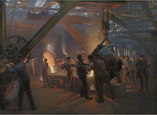 Source: Wikipedia.org Source: Wikipedia.org My great-grandfather, Michael Bodziony, was born in Poland and immigrated to America in 1910. He settled in Cleveland, Ohio and worked as a foundry laborer until he passed away in 1941. For part of that time, he was employed at the Ferro Machine & Foundry Co. of Cleveland, Ohio. His WWI registration card from 1918 lists his employer at the bottom: A brief history of the Ferro Machine & Foundry Company is listed on page 612 in Cleveland: The Making of a City by William G. Rose (published in 1950). (The phrase "this year" refers to the year 1900.) This photo, which was taken in 1924, depicts one of the company's factory units, which was located at the intersection of E. 66th Street and Hubbard Ave. It was only a few blocks away from great-grandpa's neighborhood, so he did not have to walk too far or take public transportation. (Photo courtesy of The Cleveland Memory Project and can be viewed online here.) Michael's WWI draft registration card above, and several city directories I have found list his occupation as 'chipper.' Since I don't know what a chipper does in a foundry, I looked it up. I found this description in Descriptions of Occupations: Metal Working, Building and General Construction, as published by the U.S. Bureau of Labor Statistics in 1918. Just for fun, I also found this old advertisement from the June 1908 issue of Popular Mechanics. It's pretty neat to see pictures of the types of engines my great-grandfather helped to make. Later in his life, Michael worked for another company by the name of Drop Dies and Forgings. This is the employer that is listed on his death certificate. This company, which still does forging and tool and die making, is now known as Wyman-Gordon Forgings and is still located at E. 61st St. and Sheridan, again not far from where Michael and his family lived.
As you can imagine, foundry work was a hazardous job. Not only was there a constant danger of serious burns from molten metal, but working with heavy machinery often led to major physical accidents, resulting in crushed bones and amputations. Repetitive work with heavy metal tongs and molds caused arthritis and other bone and joint problems. Decibel levels were unsafe and caused hearing loss, and looking at white-hot molten levels with no protection was dangerous to the eyes. Foundries are full of harmful chemicals which can lead to cancer and other health problems over long-term exposure. Michael passed away of stomach cancer when he was 58 years old. Granted, the average life expectancy was lower back then (which probably had something to do with hazardous working environments everywhere), but I think it's safe to assume that his cancer was probably somehow linked to his work in the foundry. (There was no OHSA back then.) |
Emily Kowalski SchroederArchives
April 2017
Categories
All
|

